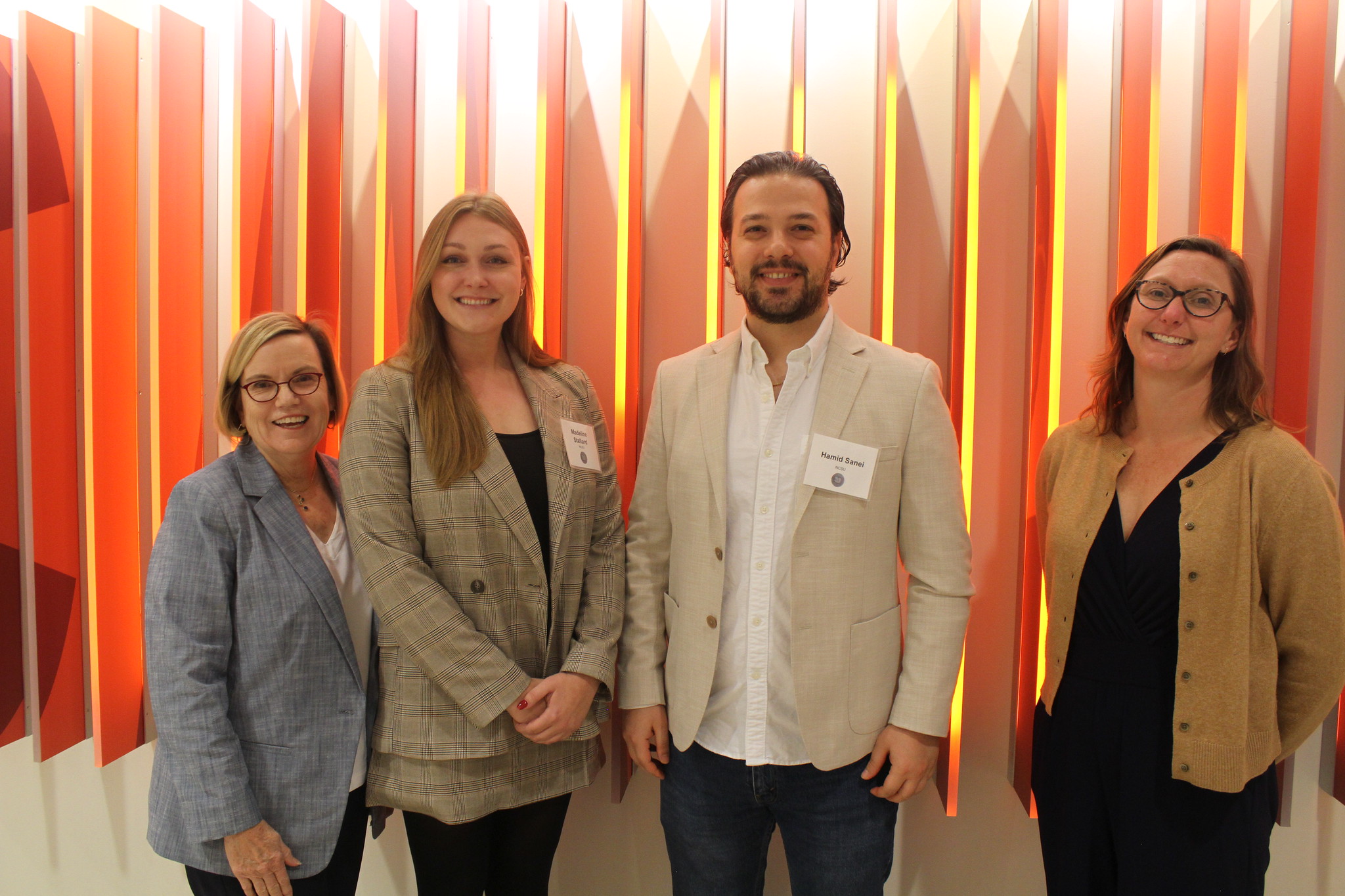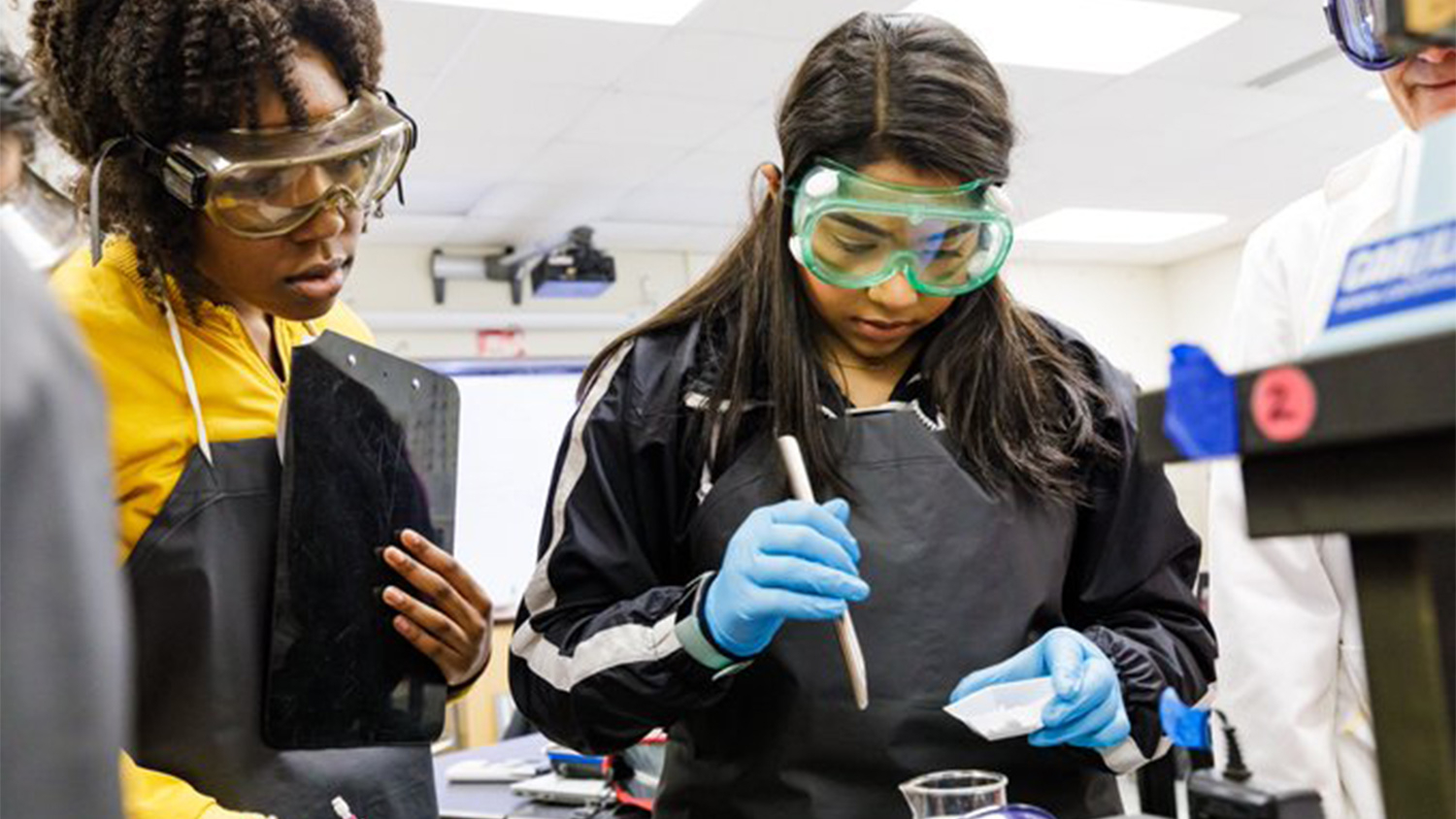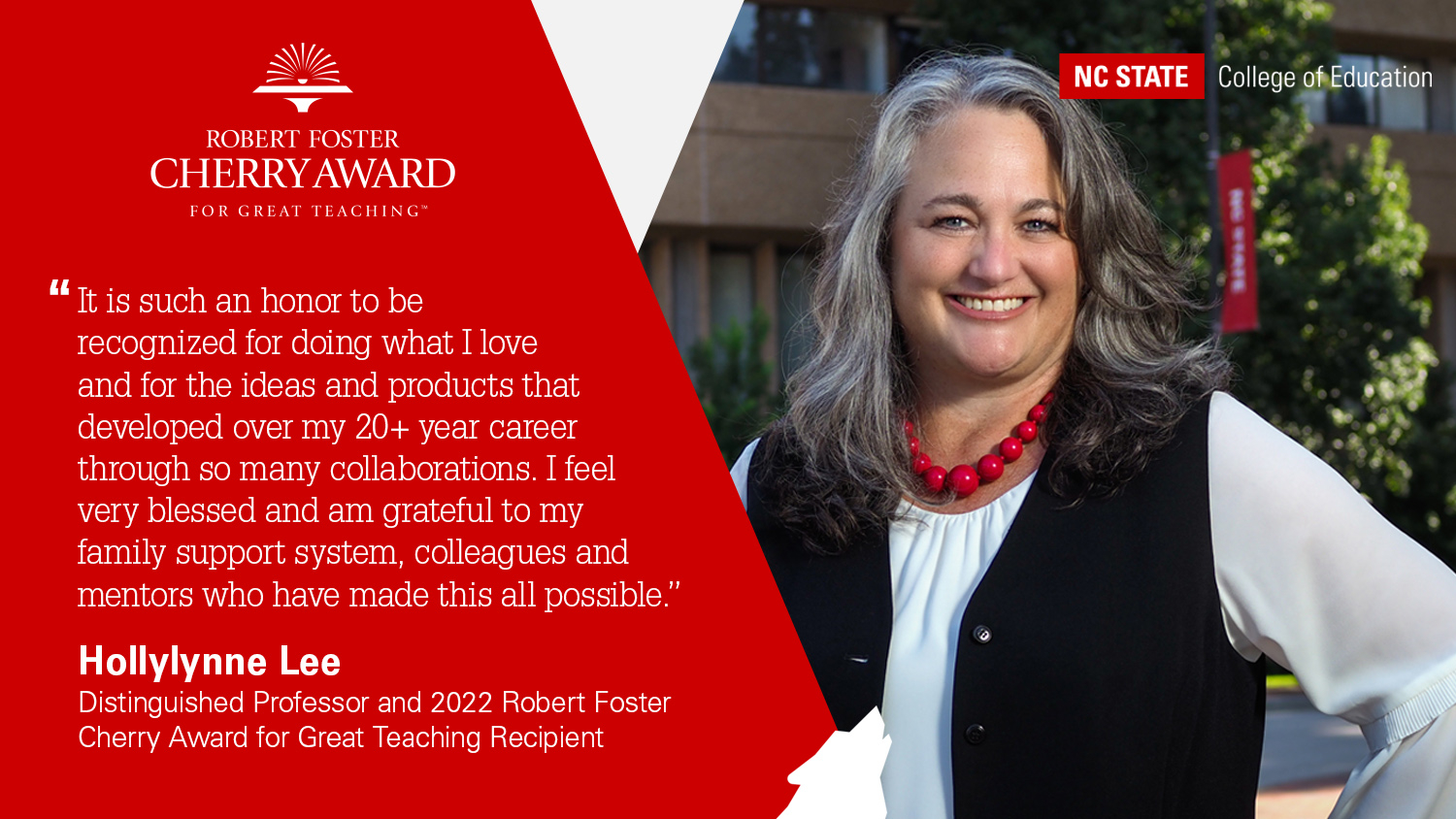Digital Durham, Developed by METRC Assistant Director Laura B. Fogle, Continues Work to Close Homework Gap Through Catalyst Grant, Institute for Emerging Issues Forum
When Laura B. Fogle, assistant director of the NC State College of Education’s Media and Education Technology Resource Center (METRC), worked as a technology facilitator in Durham Public Schools, an encounter with a student opened her eyes to how the homework gap was impacting access to quality education.
Fogle saw how a lack of access to technology was exacerbating this student’s struggles in school, so she took it upon herself to help. She partnered with a librarian at her school to request a donation of a refurbished desktop computer for the student, thinking it would help address the issue. Although the student was grateful, he reluctantly had to admit he was unable to use his new computer, because he did not have access to the internet at home.
“The crushing realization I came to was that, while I felt so good about the things I was doing and the way I was empowering students and teachers in their learning, there were certain students I wasn’t reaching because they didn’t have access like I assumed they did,” she said. “That was the beginning of my awakening to the issue of digital equity.”
That realization prompted Fogle to apply for a grant that provided funding for her school to distribute wifi hotspots and Chromebooks to students without internet access. Her efforts to address the homework gap in the community eventually grew into the Digital Durham collaborative.
Digital Durham, which began in 2016, has grown over the past few years through small grants and community support. The group, which includes librarians, technology refurbishers, and public school representatives, among others, meets monthly to share best practices, collect data and help community leaders understand issues related to digital equity.
As a recipient of the 2020 Catalyst Grant from the NC State College of Education and its Friday Institute for Educational Innovation, Digital Durham will be able to enter into its next phase of work, magnifying it’s impact on the Durham community.
Through the grant, which aims to increase research collaborations between faculty and staff at the College of Education and Friday Institute, Fogle will partner with Friday Institute Research Associate Erin Huggins, who currently works on the Institute of Museum and Library Services Homework Gap Hotspot grant-funded project.
Fogle said that the partnership will allow Digital Durham to leverage Huggins’ previous knowledge as well as the resources she has helped develop to address the homework gap and ensure that children in Durham have internet connectivity, an internet-enabled device and the digital literacy training to use it.
“The Catalyst Grant can launch us into this bigger place where we can have a sustainable, measurable impact that’s multifaceted in the community. We’ll be able to look at our collective impact and really leverage the work that each of the different participating organizations is doing,” Fogle said.
In addition to receiving the Catalyst Grant, Digital Durham has been accepted into the NC State Institute for Emerging Issues’ ReCONNECT to Technological Opportunity Cohort, where Fogle will receive professional coaching and learn from communities across the state about initiatives to increase access to broadband internet.
As a member of the ReCONNECT cohort, Fogle will also be given the opportunity to speak about digital equity at the Institute for Emerging Issues Forum on Feb. 10.
“They’re giving us the stage to be able to talk to stakeholders across the state about the work we’re doing and the importance of that work being done in Durham, which will allow us to attract other key stakeholders that we need to have at the table for this project to grow,” Fogle said.
In her talk, which will focus on digital equity and the homework gap, Fogle said she will share the story of another student she encountered while working with Durham Public Schools.
This girl — a seventh grade, English language learner who was one of an estimated 500,000 students in North Carolina impacted by the homework gap — had big dreams for her future and was willing to do whatever it took to succeed in school, Fogle said. In order to complete her assignments, the student typed and submitted her work on a cellphone with a severely cracked screen. It was the only device she owned that was capable of accessing the internet.
“Imagine what those students could do if they were connected, if they had access to online homework help, if they could apply to college online and if their parents could see what they’re doing through PowerSchool like all the other parents can,” Fogle said. “This is an issue every day. There are kids who are missing out because of this and the opportunities for them and their futures are limited because they don’t have access.”
- Categories:


